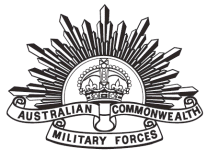
| Regimental number | 4271 |
| Place of birth | Wasa, North Finland |
| Religion | Lutheran |
| Occupation | Labourer |
| Address | National Hotel, Kalgoorlie, Western Australia |
| Marital status | Single |
| Age at embarkation | 42 |
| Height | 5' 7" |
| Weight | 184 lbs |
| Next of kin | Brother, Charles William Johnson, Parramatta, New South Wales |
| Enlistment date | |
| Rank on enlistment | Private |
| Unit name | 28th Battalion, 10th Reinforcement |
| AWM Embarkation Roll number | 23/45/3 |
| Embarkation details | Unit embarked from Fremantle, Western Australia, on board HMAT A38 Ulysses on |
| Rank from Nominal Roll | Private |
| Unit from Nominal Roll | 28th Battalion |
| Fate | Returned to Australia |
| Discharge date | |
| Other details |
War service: Egypt, Western Front Embarked from Alexandria to join the British Expeditionary Force, 29 May 1916. Wounded in action, 27 August 1916 (shrapnel wound, leg); admitted to No. 2 Casualty Clearing Station, 30 August 1916; transferred to No. 3 Canadian General Hospital, Boulogne, 31 August 1916; to No. 7 Convalescent Depot, 4 September 1916; to No. 2 Base Rest Camp, 24 September 1916; returned to duty, 26 September 1916. Admitted to 5th Australian Field Ambulance, 6 October 1916 (influenza); returned to duty, 12 October 1916. Wounded in action, France, 16-18 November 1917; rejoined Bn, 23 November 1916 (no further details recorded). Admitted to 1st New Zealand Stationary Hospital, Amiens, 21 December 1916 (debility); transferred to 26th General Hospital, Etaples, 11 January 1917; to England, 16 January 1917 (age & debility), and admitted to Middlesex War Hospital. Discharged on furlough, 2 February 1917, to report to No. 1 Command Depot, Perham Downs, 17 February 1917. Marched in to No. 2 Command Depot, Weymouth, 24 February 1917. Commenced return to Australia from Plymouth on board 'Ayrshire', 23 May 1917 (senility); discharged, 28 July 1917. Medical report, 21 February 1917, stated: 'He was 6 months in France and always carried out his duties until he was buried about 17.12.16. He was dug out, & carried on for a while, when he found he was getting weak, & his sight was getting defective. He feels a slight tenderness in the neck & shoulder where he was buried.' Medals: British War Medal, Victory Medal Medals marked 'returned, 30 September 1924'. |